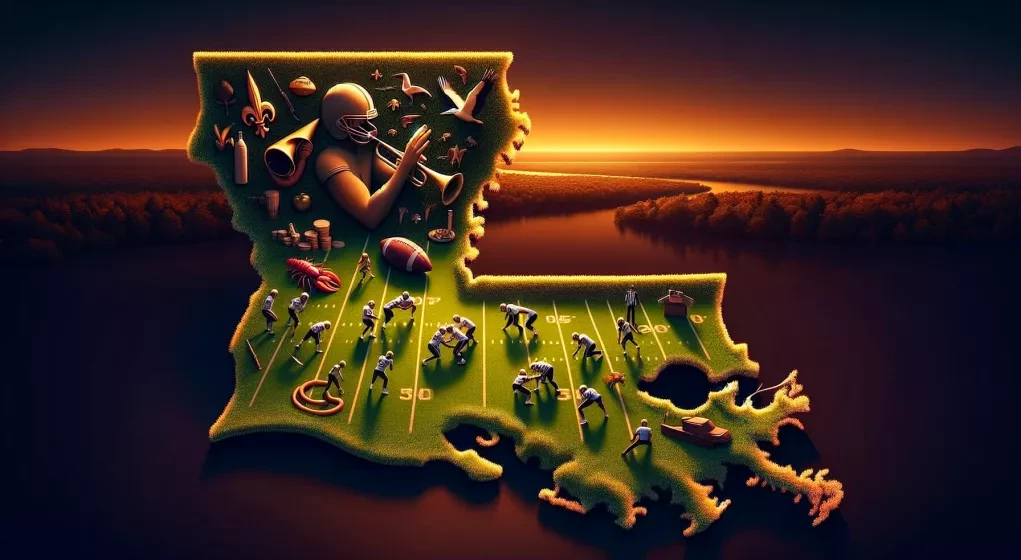In the high-stakes realm of the sports betting industry, an unexpected twist comes from the bayous and extravagant casinos of Louisiana, where lawmakers are now entertaining the idea of a dramatic tax hike that, should it come to pass, would alter the fiscal landscape of the game. Against the glittering backdrop of New Orleans’ Caesars Superdome, Rep. Roger Wilder III has unveiled House Bill 22. This bill isn’t playing it safe—it’s a bold roll of the dice that proposes a formidable increase of the sports betting tax from a modest 15% to a towering 51%.
Louisiana, having launched mobile sports betting just over a year ago, has been riding a wave of success, proudly earning the title of the casino capitol of the Southeast. In the competitive national rankings, the state holds the 15th spot based on the total amount wagered since embracing the sports wagering realm. But with larger states looming on the horizon, the spotlight on Louisiana could dim unless an ace is played.
The question on everyone’s mind: What spurred Wilder’s leap to such an astonishing tax rate, paralleled only by the likes of New York and Vermont? The answer remains veiled in political strategy, although it’s curious to note that sportsbook operators have not taken kindly to New York’s heavy-handed approach despite its large population and resulting market power—advantages Louisiana does not possess.
Aside from startling tax hikes, HB 22 seeks to level another playing field by potentially dispensing with promotional play, thereby striking a vital marketing tool from the hands of operators. These incentives, crucial for attracting and retaining bettors, could be dismissed just as they were embraced, drawing a line in the sand between profit margins and regulatory oversight.
Meanwhile, the horse racing world breathes a sigh of relief; the proposed changes in tax structure steer clear of Louisiana’s cherished pari-mutuel betting tradition. In an industry where heritage and innovation run neck and neck, the gallop of hooves on a racetrack will not be subject to the same fiscal reshuffling that looms over the digital realm of sports gambling.
Farther north, Illinois has recently retooled its own tax strategy, imposing a graduated taxation system that nudges larger entities into higher brackets. This move doubled down on the tax rates for industry giants like DraftKings and FanDuel and sparked a ripple of speculation that other states might follow suit. Contrary to expectations, however, the eyes of the industry pivoted not towards Michigan or New Jersey, but rather rested on the unanticipated contender—Louisiana.
Amidst speculations and whispers, the fate of House Bill 22 hangs in the balance, its progress as unpredictable as the sports book it seeks to govern. Yet Louisiana holds a geographical trump card: with neighboring states resistant to the allure of mobile betting, its own market stands primed and ready, should this tax proposal become more than just a fixture of fiscal fantasy.






